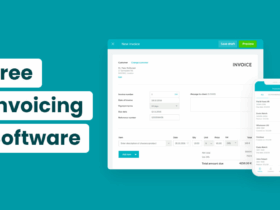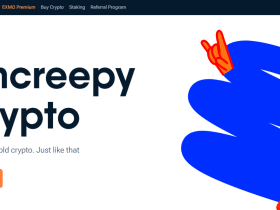What Is Crypto Airdrop?
A crypto airdrop is a marketing strategy used by blockchain-based companies or projects to distribute their cryptocurrency tokens or coins to a large number of users for free or as a reward for performing certain actions, such as completing a survey, joining a Telegram group, or sharing their project on social media.
Airdrops are usually conducted to generate awareness and interest in a new project, to increase the token’s liquidity and trading volume, or to reward early adopters and supporters of a project. Airdropped tokens are often distributed through Ethereum-based smart contracts and are automatically sent to the wallets of eligible participants.
While some airdrops can be legitimate opportunities for users to acquire new cryptocurrency tokens, others may be scams or fraudulent schemes aimed at tricking users into giving away their private keys or personal information. Therefore, it is important to carefully research and verify the legitimacy of an airdrop before participating.
What Is Orderly Network Airdrop?
Orderly Network Airdrop is a permissionless, decentralized exchange protocol and modular ecosystem built on top of NEAR. It currently uses an off-chain order book to provide a platform complete with a risk engine, matching engine, and shared asset pools for dApps to build on top of, with a goal of moving to a full on-chain mechanism.
Orderly Network doesn’t have an own token yet but could launch one in the future. Early users who’ve traded on the platform may get an airdrop if they launch an own token.
Basic Orderly Airdrop Points
| Basic | Details |
|---|---|
| Token Name | NFTPerp Airdrop |
| Platform | NEAR |
| Support | 24/7 |
| Total value | N/A |
| KYC | KYC Is Not Requirement |
| Whitepaper | Click Here To View |
| Max. Participants | Unlimited |
| Collect Airdrop | Click Here To Collect Free Airdrop |
How To Claim Orderly Network Airdrop Step-by-Step Guide:
- Visit the Orderly Network Airdrop page.
- Connect your NEAR wallet.
- Now make trades on the exchange.
- Also change the network to testnet and trade.
- Orderly Airdrop is the first dApp to launch on Orderly Network and trading on Orderly may likely make you eligible for an airdrop if they launch an own token.
- Please note that there is no guarantee that they will do an airdrop and that they will launch their own token. It’s only speculation.
How To Check Orderly Network Airdrop Is Real Or Fake
Checking the legitimacy of a crypto airdrop can be a bit tricky, as scammers often use sophisticated techniques to create fraudulent airdrop campaigns that appear to be legitimate. Here are some steps you can take to verify the authenticity of a crypto airdrop:
- Research the project: Before participating in any airdrop, it’s essential to research the project behind it thoroughly. Check the project’s website, whitepaper, social media profiles, and community forums to learn more about its team, vision, and roadmap. If the project seems sketchy or lacks transparency, it’s best to avoid the airdrop altogether.
- Check the source: Make sure that the airdrop announcement or promotion is coming from an official source, such as the project’s website, social media profiles, or community forums. Be wary of airdrops that are promoted through spam emails, unsolicited private messages, or fake social media accounts.
- Verify the instructions: Legitimate airdrops typically have clear and straightforward instructions for participation. Make sure that the instructions are feasible and reasonable, and that they don’t require you to reveal your private keys, passwords, or sensitive personal information.
- Look for feedback: Check online forums and social media groups to see if other users have participated in the airdrop and whether they received the promised tokens. If there are many complaints or red flags, it’s best to avoid the airdrop altogether.
- Trust your instincts: If an airdrop seems too good to be true or makes unrealistic promises, it’s probably a scam. Use your common sense and trust your instincts when evaluating the legitimacy of a crypto airdrop.
- In summary, it’s important to conduct thorough research, verify the source and instructions, look for feedback from other users, and trust your instincts when evaluating the legitimacy of a crypto airdrop. By taking these steps, you can minimize the risk of falling for a fraudulent airdrop and protect your assets and personal information.
What are the risks of participating in an airdrop?
Participating in an airdrop can carry some risks, such as exposing your personal information to scammers or downloading malicious software. You should always use caution when participating in airdrops and prioritize the safety and security of your assets and personal information.
Remember that while airdrops can be a legitimate way to acquire new cryptocurrency tokens, they can also be used as a tool for scams and fraudulent schemes. Always do your own research, use caution, and prioritize safety and security when participating in airdrops.
Orderly Airdrop Roadmap

Orderly Network Airdrop Pros Or Cons
Pros of participating in an airdrop:
- Free tokens: Airdrops can provide a way for users to obtain free tokens or coins from a project without having to invest any money.
- Low risk: Airdrops generally do not require any financial investment, making them a low-risk way to try out a new project or cryptocurrency.
- Community building: Airdrops can help build a project’s community and increase its visibility by incentivizing users to promote it to their networks.
Cons of participating in an airdrop:
- Scams: Airdrops can be used as a tool for scams and fraudulent schemes aimed at stealing personal information or assets from unsuspecting users.
- Limited token distribution: Airdrops often have limited token distribution, meaning that only a small number of participants may receive tokens, while others may be left empty-handed.
- Token value: The tokens received in an airdrop may not have any real value or may lose value quickly, making them a poor investment choice.
Orderly Network Airdrop Final Verdicts
If you are interested in participating in Orderly Network airdrop, it’s important to do your own research and carefully evaluate the legitimacy of the project and the airdrop offer. Make sure that you understand the instructions and requirements for participation, and never reveal your private keys, passwords, or sensitive personal information.
Remember that not all airdrops are legitimate or worthwhile, and some may be scams or fraudulent schemes aimed at stealing your assets or personal information. Use caution and common sense when participating in airdrops, and always prioritize the safety and security of your assets and personal information.










































Leave a Reply